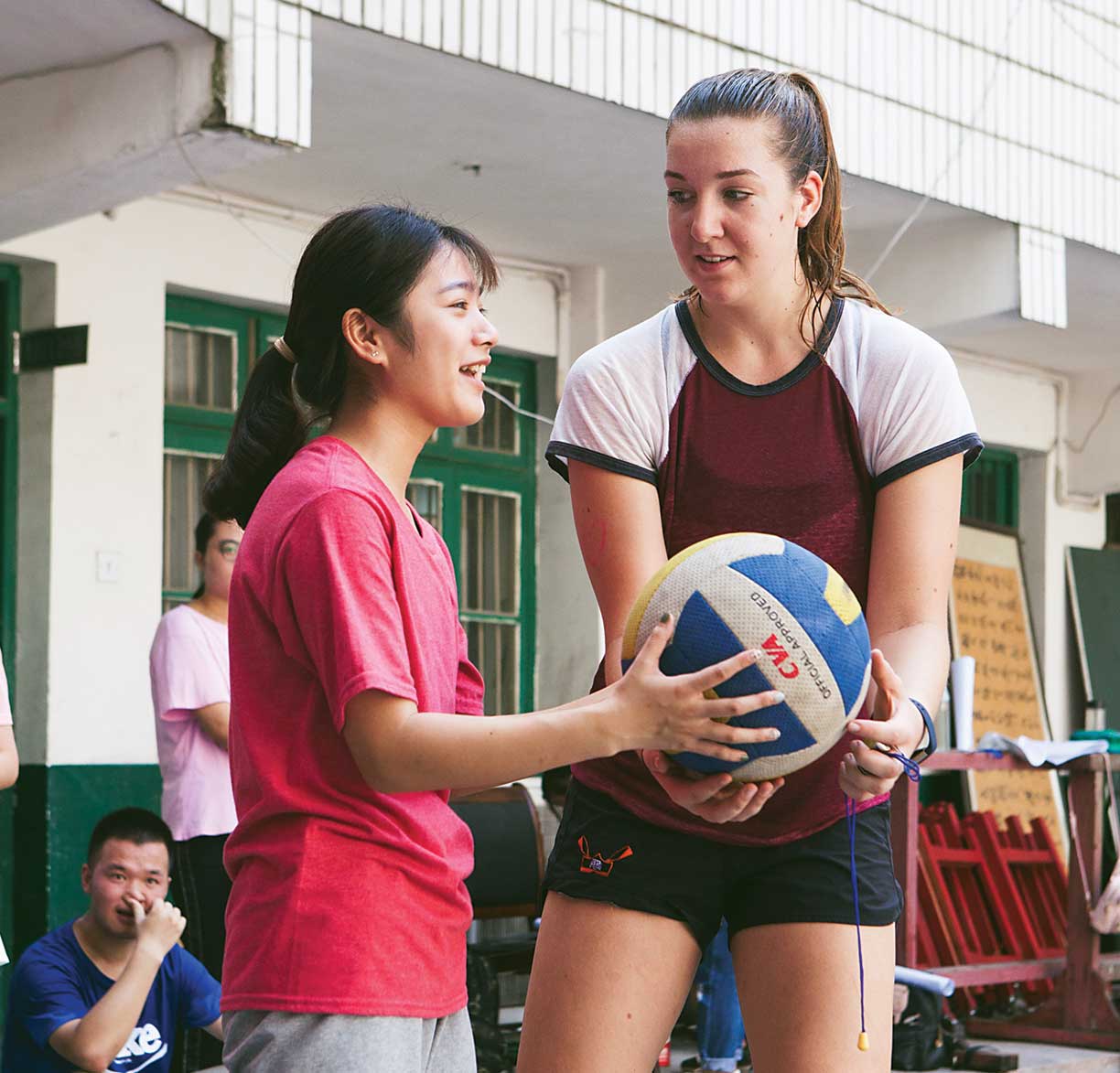International Fellowship Groups Go Remote, Hope to Return Abroad
‘Folks are really ... wanting to get back into the field,’ said M.B. Dillon ’06, the executive director of Princeton in Asia
When reports of a novel coronavirus started coming out of China in early 2020, Princeton in Asia had 130 fellows and employees in 17 Asian countries, including a large number in China. Individual country programs were shut down throughout February before the entire program was shuttered in March.
“In terms of what was going on in our office, it was confusing, chaotic, challenging, unsure of what was going to happen next and how things were going to unfold,” said M.B. Dillon ’06, the executive director of Princeton in Asia (PiA), who was also a PiA fellow in Laos from 2010 to 2013. “But we were on it from a very early point. This was a fabulous example of people working together to keep our fellows safe and to help them navigate the situation.”
While 20 PiA fellows decided to stay and support their host organizations during the lockdown, PiA helped to evacuate the rest of its fellows and staff, and no one in the program ended up getting sick.
PiA was not alone in facing international COVID challenges. Both Princeton in Africa (PiAf) and Princeton in Latin America (PiLA) have continued to work with host organizations throughout the uncertainty of the last year and a half.
While fellows were given resources to evacuate their host countries and make their way home, all three programs had participants who opted to stay abroad. But a new cohort of fellows presented a new challenge: Could an international program function remotely?
“We only wanted to do this if it was something the organizations and the fellows thought would work,” PiAf program director Stephanie Hooper Leroy said of the decision to offer remote programming. In the 2020–21 cohort, PiAf ended up having 16 remote fellows, PiA had eight, and PiLA had 10.
Trina Swanson ’20 worked as a resource mobilization officer with the Baylor College of Medicine International Pediatric AIDS Initiative in Eswatini, formerly known as Swaziland, from her home in Iowa. She said she was thankful for the opportunity, though it was difficult to connect with her colleagues abroad at first. She wished she could have been there in person.
“It was a little disappointing, but we did manage to find meaningful work to do, and we were able to adapt,” Swanson said. “We made it work even though it wasn’t ideal.” She finally made it to Eswatini in September and is working with the same organization as a Fulbright researcher while she applies to medical schools.
Of course, not all fellowships could be done remotely. Some health and education organizations had work that could only be done in person, and other organizations lost their funding and couldn’t take on fellows.
As a second year of remote fellowships begins (24 fellows in Africa, eight in Asia, and four in Latin America), all three organizations say they are aware of the uncertainty the pandemic presents yet remain hopeful that in-person programming can resume. While PiAf continues to monitor the pandemic, PiLA is not accepting new applicants this fall (the organization is only working with deferred finalists from previous years) and is hoping to have fellows back in the field by summer 2022. PiA is currently finalizing placements for a small group of in-person fellowships this winter, though these plans are subject to change.
“What’s been interesting to see is that, as things have started to open up back here in the U.S., there’s a real hunger for in-person interaction,” Dillon said. “Folks are really craving that and wanting to get back into the field, and we’re trying to meet that responsibly and safely.”
Annie Leister, the managing director of PiLA, has taken valuable lessons from the last two years. “I certainly can’t say the remote fellowships have been perfect — the fellows and partners have both had some challenges,” she said. “But I think we’ve all learned from those experiences, we’ve made some adaptations for the new remote fellowships starting this summer, and we’re looking forward to just strengthening relationships with all our stakeholders moving forward.”












No responses yet